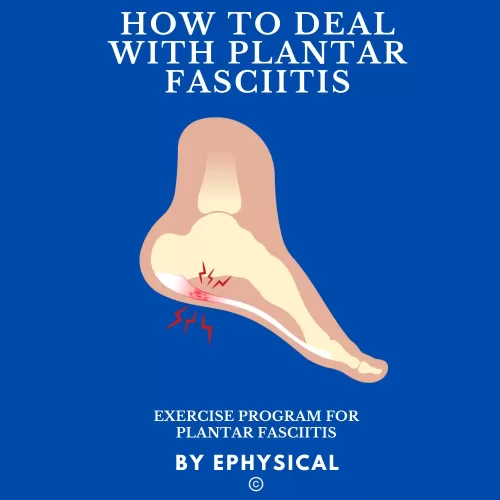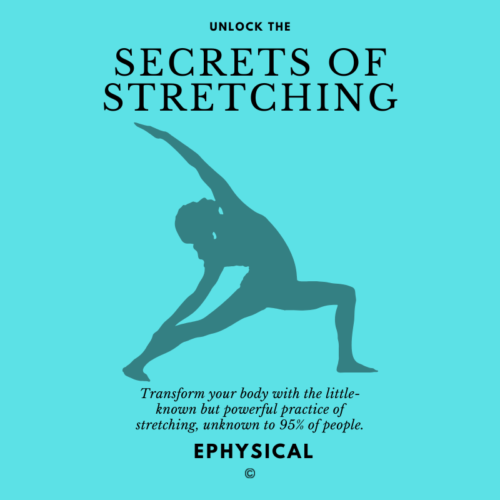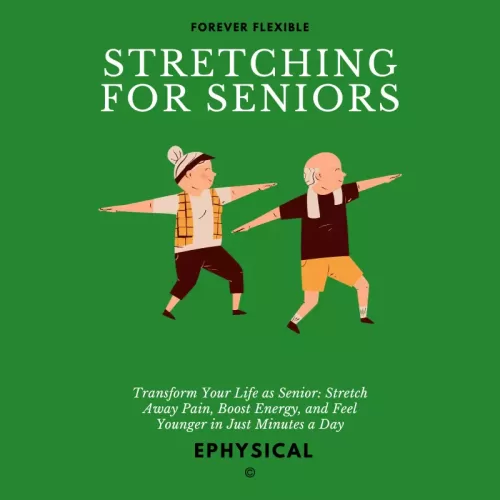Back Pain From Running on Treadmill
Why Do I Have Back Pain From Running On Treadmill?
I love running on a treadmill because it is a simple and efficient way to improve physical fitness and lose fat tissue. However, it often happens that I get back pain from running on treadmill. Why does running on a treadmill causes pain in my back?
Running on a treadmill can cause back pain, especially if you are a beginner at running. There are three main reasons for back pain from running on a treadmill: bad running technique, overtraining and a controlled environment. I will explain in detail why back pain occurs after running on a treadmill, as well as the way you can prevent it and what exercises you can do that will reduce back difficulties.
Why does running make my back hurt?
Running in general is a high-impact physical activity that requires good physical fitness. Many people consider running to be a light activity and underestimate the impact that running has on joints, ligaments and muscles. Therefore, muscle and ligaments injuries in lower back area are pretty common among running lovers which leads to back pain.
Why is Treadmill Bad For You?
Running on a treadmill doesn’t necessarily mean it’s bad for you. However, several factors can negatively affect the health of your back when you run on a treadmill.
Bad Running Technique
Running on a treadmill requires you to have a good running technique to avoid back pain. There is a great chance that you spend a lot of time running on the treadmill, and with a poor body position while running, you can, unfortunately, contribute to more pressure on your back and back pain.
The most common postural mistakes while running on a treadmill are leaning forward, flexing your neck and looking down. As a result, the muscles in the lower back have to work harder and become sensitive to injuries such as overstretching the muscles and causing back pain.
Don’t use your mobile while running and use wireless headphones if you’re listening to music while running on a treadmill. That way you avoid unnecessary flexing of the neck.
You must ensure good posture when running on the treadmill since you will spend a lot of time running there. Good posture when running means having a straight back, relaxed shoulders and looking forward all the time.
It is hard to maintain a good posture during a long run, so it is important to know when to stop running to prevent muscle strain and overtraining issues.
Overtraining
Most people think the same when it comes to running. The longer you run, the better result you have. You burn more calories, improve your fitness more, and you are one step closer to a marathon or half-marathon.
But very often you end up with overtraining when running for a long time on the treadmill or outside. How does overtraining happen and what are the consequences?
If you’re running on a treadmill long enough to change your posture or notice discomfort in your knee or back, it’s time to take a break.
Unfortunately, there is no formula for calculating how much you should run on a treadmill, but keeping an exercise diary can help you control the intensity and volume of your treadmill.
With overtraining from running on a treadmill, you can experience muscle pain in the lower back and/or discomfort in your knees. The lower back and knees are most prone to reaction from running on a treadmill since there is a lot of repetitive motion and stress on the lower back and knees.
Is it OK to Treadmill Every Day?
Running on a treadmill every day is not a good idea, especially if you are running over 45 minutes every single day. Running every day increases the chances of injuring your knee or lower back caused by repetitive high-impact movements from running. Reading this blog post you will learn more about running and lower back pain.
Is it Better to Run on a Treadmill or Walk at an Incline?
It is better to run on a treadmill than to walk at an incline. Walking incline is very strenuous for the knees, especially the ligaments, and can lead to inflammation of the patellar tendon. Running on a treadmill, if practiced safely, is much more natural for the body and it’s more effective for losing weights or achieving better physical fitness.
Is Running Outside Better Than Running on a Treadmill?
Running outdoors has its advantages such as fresh air and is more interesting than running indoors. However, running on a treadmill is much more practical and you don’t have to worry about the weather outside. So it all depends on you and your preferences and goals.
Environment
When you run on a treadmill, the environment in which you run is very controlled. You run in a straight line, the surface on which you run does not change and you run at the same speed and on the same slope.
How does it affect the back?
When running conditions are constant and unchanging, there is a greater chance of injuring structures affected by running. The lower back takes a lot of burdens while running and that is why there are frequent injuries in the lower back after running on the treadmill.
Is a Treadmill Hard on Your Back?
A treadmill is not bad for your back if you train smartly and safely. Walking or running on a treadmill is a great activity to improve fitness, reduce fat deposits and improve bone health. However, if you run too much on the treadmill, you can cause lower back discomfort.
How Do I Prevent Lower Back Pain When Working Out on Treadmill?
- Make sure you have proper running shoes when running on a treadmill. They can relieve the pressure on your back that occurs every time you jump on the treadmill.
- Hire a fitness trainer or physiotherapist to analyze if you are running properly on the treadmill. If you run on a treadmill at home, use a mirror to analyze yourself while running
- Take frequent breaks when running on the treadmill. There is no need to run constantly and put your body at unnecessary risk.
- Use the incline option. Running incline activates more muscles in the legs, while the lower back puts less pressure.
- Warming up and strength exercises before running are a great way to prepare your whole body for running, whether you are running outside or on a treadmill. Use around 20 minutes for warming opp and exercising before running.
Can I Use Treadmill if I Have Back Pain?
Having lower back pain does not mean that you can’t use your treadmill. But you should use your treadmill only for walking for a short period. Walking on the treadmill improves better blood circulation in the body, and thus reduces pain in the lower back.
Running on a treadmill in the presence of lower back pain is not recommended and may worsen the pain.
Is Treadmill Incline Bad For Back?
Treadmill incline puts more pressure on your lower back and knees and can cause pain in the lower area. You should not treadmill incline over a long period.
How Fix Lower Back Pain Fast?
To fix the lower back pain fast, you need to know the reason for pain in the first place. Visiting a physical therapist is something I highly recommend. Fixing lower back pain fast consists of finding the right position to rest the lower back and doing some exercises that will help you relieve the pain.
Exercises for Back Pain From Running On Treadmill
If you feel the tension in your lower back after or while running on a treadmill, you should take a look at these exercises. They will help you relieve the pain and reduce the pressure off the lower back.
Knees to Chest
Lay down on your back and bend your legs at the knees. Then draw your knees to your chest with your hands and exhale. Try to keep 15s in that position and repeat ten times.
Single-Leg Raise
Lie on your back and extend one leg. Raise your outstretched leg as much as you can, and hold it for 15 seconds in the air. Then slowly lower your leg and repeat ten times. Do not lift your buttocks from the ground while raising your leg.
Hip Rotation
Lie on your back and bend both legs at the knee. Then rotate your knees to the side until your knees touch the floor. Do the same on the other side. Repeat ten times.
Conclusion
Running on a treadmill is a great activity with many health benefits for your body, but only if you know what are you doing. Proper running technique and running equipment, organized training routine and discipline is something you need to have to avoid lower back pain from running on a treadmill.
Running will impact your lower back with every step you take on a treadmill, so you need to be aware of that and do everything you can to prevent lower back pain from running.
More Information About Back Health
- Lower Back Pain After Deadlift – Learn the connection between lower back and deadlift exercises, what are the common back injuries after a deadlift, and what it takes to prevent and relieve the pain. You can read the simple and effective exercise program that helps to relieve muscle tension in the lower back. I apply the same exercises when I go too hard with training!
- Back pain and squats – Learn how to avoid back pain when squatting, why you should squat regularly and what is the bests squatting variation if you have low back pain.
- Tight hip flexors and back pain – The role of hip flexors in maintaining the good health of the lower back. Learn why you should train and take care of the hip flexor muscle group.
- Back hurt from being overweight – Being overweight can increase the pressure of your lower back in daily activities.
- Tight gluteus and lower back – Glutes are powerful muscles that plays a huge role in lower back health. Learn how to avoid common mistakes that causes weak and tight glutes.
- Anterior Vs Posterior Pelvic Tilt – Everything you need to know about anterior and posterior pelvic tilt.
- Back Pain From Improper Lifting – Having a proper lifting form is key to saving your back muscles, ligaments and joints from being hurt. Improve your lifting technique today.





